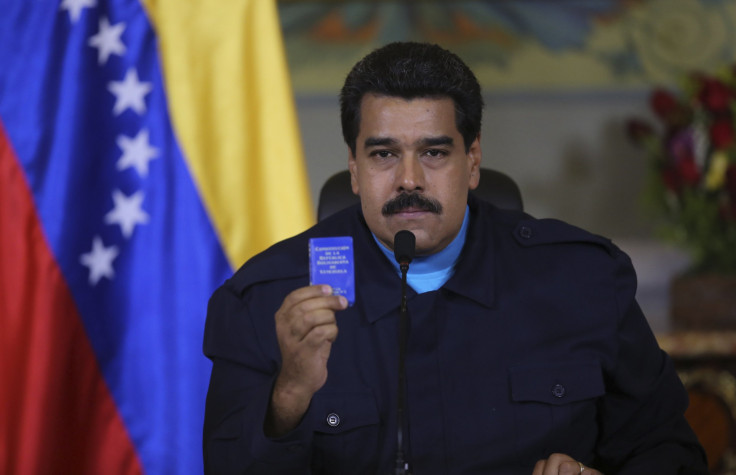Venezuela's Nicolás Maduro Asks Special Powers To Deter US Sanctions 'Aggression'

Venezuelan President Nicolás Maduro requested new powers from Congress to respond to what he called “aggression” after U.S. President Barack Obama issued new sanctions on seven Venezuelan officials this week.
Maduro announced Monday evening he would seek a law granting him special powers to “defend peace, sovereignty, tranquility and the integrity of our country,” and to “prepare for all scenarios,” although he offered no details about what those powers would entail. The announcement came at the end of a defiant, nationally broadcast speech decrying the new sanctions as an imperialist move and the worst offense the U.S. has ever committed against Venezuela. Maduro’s administration will request the special powers law Tuesday during a session of the National Assembly.
Obama issued an executive order Monday morning issuing sanctions on seven top Venezuelan officials, accusing them of committing human rights abuses and repressing the opposition in the crackdown on mass protests last spring. The sanctions prevent the seven officials from traveling to or doing business with the U.S., and also freeze their U.S.-based assets.
The White House statement on the order said Venezuela’s situation posed an “unusual and extraordinary threat to the national security and foreign policy of the United States,” a phrase that raised some eyebrows. But U.S. officials said the language was part of Washington’s standard practice in starting a sanctions program against another country.
As Maduro railed against the sanctions Monday evening, he stood with the seven officials targeted by the executive order, declaring his support and congratulating them for the “imperial honor.” He then promoted one of them, intelligence chief Gustavo Gonzalez Lopez, to head of the Interior Ministry. On Monday, Caracas also announced it was recalling its top diplomat in Washington for consultations.
The story of escalating tensions between the U.S. and Venezuela has been a familiar one over the past few months, particularly after Maduro’s administration accused the U.S. in February of conspiring with Venezuela’s opposition to overthrow the government. Shortly afterward, the government arrested the mayor of Caracas for his alleged role in the plot, a move that sparked concern over a wider political crackdown.
Venezuela’s allies in the region voiced their support for Caracas following the U.S. sanctions announcement. Cuba offered its “unconditional support” for Venezuela, calling the sanctions “arbitrary and aggressive,” while Ecuador’s President Rafael Correa took to Facebook to call the executive order a “bad joke.” China also chimed in. The Foreign Ministry said Monday that a dialogue between the U.S. and Venezuela would “be beneficial for peace and stability in Latin America,” according to local reports.
© Copyright IBTimes 2024. All rights reserved.












